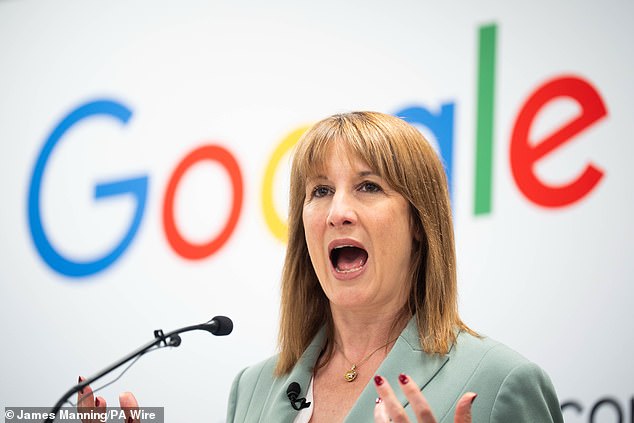The Bank of England crushed hopes of an interest rate cut today after more worrying signs on inflation.
The Monetary Policy Committee kept the base rate at 4 per cent as it announced the latest decision at noon.
Concerns about price pressures look to have outweighed the desire to kick-start the stalling economy – denying Rachel Reeves a much-needed boost.
Seven members of the committee voted to maintain the level, with just two backing a reduction.
However, the Bank also moved to slow the process of ‘quantitative tightening’ – effectively selling off government debt. That could ease the strain on the Treasury’s borrowing costs.
Firms have blamed the Chancellor for adding upwards momentum to inflation with her Budget tax raid and minimum wage hike.
Official figures released yesterday showed headline CPI stuck at 3.8 per cent in August – the highest level since the beginning of 2024.
Analysts pointed to a bump in food and drink costs, with the annual increase accelerating to 5.1 per cent from 4.9 per cent in July.

Concerns about price pressures look to have outweighed the desire to kick-start the stalling economy – denying Rachel Reeves a much-needed boost
Interest rates were cut to 4 per cent in August, from 4.25 per cent, helping borrowers and mortgage holders.
But economists believe the MPC might fight shy of cutting rates at meetings in November and December, meaning the figure could be kept on hold until February.
The minutes of the BoE meeting today noted there had been more progress on reducing wage inflation than prices. It said CPI is likely to tick up again this month, before falling towards the 2 per cent target.
‘The Committee remains alert to the risk that this temporary increase in inflation could put additional upward pressure on the wage and price-setting process,’ the minutes said.
‘Pay growth remains elevated, but has fallen and is expected to slow significantly over the rest of the year.
‘Services consumer price inflation has been broadly flat over recent months. Upside risks around medium-term inflationary pressures remain prominent in the Committee’s assessment of the outlook.’
The MPC said it would continue to take a ‘gradual and careful approach’ to interest rates.
‘The timing and pace of future reductions in the restrictiveness of policy will depend on the extent to which underlying disinflationary pressures continue to ease,’ the minutes said.
The Bank has been selling off government bonds – known as gilts – as it slowly unwinds the quantitative easing policy deployed in the Credit Crunch.
However, there has been criticism that the plan, intended to reduce Threadneedle Street’s exposure, crystallises losses. With the government engaged in massive borrowing to fund its activities, increasing the supply of gilts on the market also drives down prices – meaning interest rates rise.
Seven MPC members voted to reduce the planned sales of bonds from £100bilion over the next 12 months to £70billion. One member wanted a bigger reduction, while chief economist Huw Pill backed keeping the level at £100billion.
The Bank of England is forecasting CPI inflation to peak at 4 per cent in September before gradually declining.
Andrew Bailey, the Bank’s Governor, said last month that ‘the path continues to be downwards’ when it comes to interest rates but that there was ‘genuine uncertainty’ about that.












